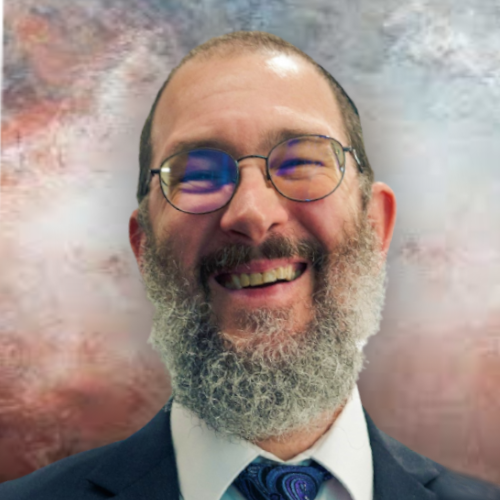
Do you sometimes feel like you're trapped? Are you ever haunted by the sense that the walls are closing in around you, with no doors or windows? How will you escape when there's no way out?
Maybe it's just mild disquietude. Maybe it's malignant unease swelling toward irrepressible anxiety. Either way, you're not alone.
A recent survey from Resume Now determined that 60% of workers feel trapped in their jobs. Although 66% believe a new career would improve their quality of life, only 13% have made the move.
Others may feel trapped in relationships (or out of relationships), trapped by the demands of parenting (or caring for aging parents), trapped by the expectations of others or by unseen forces that condemn them to a life of drudgery and monotony. According to Gallup, only 47% of Americans in 2024 reported being "very satisfied" with their lives — just one point off the all-time low.
It's a disturbing trend, especially considering the many ways standards of living have improved around the world. These include increased life expectancy, literacy, sanitation and economic growth, together with decreases in illness, child mortality, famine, indoor air pollution and extreme poverty.
So why do we feel embittered by the winter of our discontent? And what can we do about it? The answer to both questions resides in this week's addition to the Ethical Lexicon:
Oubliette (ou*bli*ette/ oo-blee-et) noun
A secret dungeon with an opening only in the ceiling, as in some old castles.
A cell used for solitary confinement or to hold prisoners who were deemed unimportant or expendable.
The word derives from the Latin oblivisci, which also gives us oblivion. The more reasons we have to be happy and grateful, the more lost and abandoned we feel when joy eludes us. We can find no way out of the prison of our minds, languishing at the mercy of unseen jailers.
The resulting sense of being trapped manifests as feelings of isolation from others and detachment from our own lives. We grow indecisive, stressed and restless; we lack enthusiasm and allow our minds to drift into daydreams and escape into fantasy.
So how do we escape into reality instead? The problem itself directs us toward the solution. Just as the image of an oubliette imposes feelings of helpless entrapment, it also points us toward the way out: Look up.
Research increasingly confirms the teachings of ancient wisdom: The secret to happiness lies in connection and higher purpose. In other words, the rewards of self-accomplishment can't compare with the fulfillment I feel as part of something greater than myself.
The revered sage Hillel the Elder encapsulated this in his famous dictum: "If I am not for myself, who will be? And if I am only for myself, what am I?" Hillel's first question spurs us toward connection. His second question adjures us to discover our purpose.
Are we holding ourselves accountable for the direction of our lives? Do we resist making excuses for our shortcomings and blaming others for our disappointments? Have we aspired to make the most of the blessing with which we've been endowed? Only if the answer is yes will others want to join us on our journey.
But connection is only positive when it is positively directed. The American Revolution created the first democratic government in modern history and elevated mankind's concept of nationhood to one of aspirational nobility. In contrast, the Russian Revolution produced one of the most oppressive dictatorships in human history and snuffed out the lives of countless millions. Only ethical vision can transform the madness of crowds into the wisdom of crowds.
To escape from prisons of concrete and iron or from prisons of our own minds, the first step is to look beyond the walls of our confinement. True freedom is found in the company we keep and the destination we hope to reach. When we invest both in ourselves and in higher ideals, we will soon discover doors we never noticed opening right before our eyes.
Indeed, Hillel concludes his lesson with his most famous call to action: "If not now, when?"
Previously:
• The Wisdom of Knowing What You Don't Know
• Success Thrives in the Light of Purpose and Passion
• When Seeking Peace, Don't Release the Dogs of War
• Greta Thunberg Sails Toward Moral Hypocrisy
• Checking More Boxes Is Not the Solution
• Why Sometimes NOT Seeing Is MORE Believing
• A Healthy Diet for the Brain Promotes Ethical Clarity for the Mind
(COMMENT, BELOW)
Rabbi Yonason Goldson graduated from the University of California at Davis with a degree in English, which he put to good use by setting off hitchhiking cross-country and backpacking across Europe. He eventually arrived in Israel where he connected with his Jewish roots and spent the next nine years studying Torah, completing his rabbinic training as part of Ohr Somayach's first ordination program. After teaching yeshiva high school for 23 years in Budapest, Hungary, Atlanta, Georgia, and St. Louis, Missouri, Rabbi Goldson established himself as a professional speaker and advisor, working with business leaders to create a company culture built on ethics and trust. He has published seven books and given two TEDx Talks, is an award-winning host of two podcasts, and writes a weekly column for Fast Company Magazine. He also serves as scholar-in-residence for congregations around the country.


 Contact The Editor
Contact The Editor
 Articles By This Author
Articles By This Author